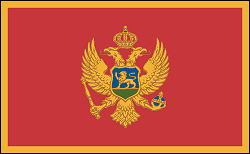- / Countries of the World
- / history
Montenegro History

Index
- Montenegro Profile
- History
Independence Is Declared
In May 2006, Montenegro held a referendum on independence, which narrowly passed. On June 3, it declared independence, and on June 26, it became the 192nd member of the United Nations. Prime Minister Zeljko Sturanovic resigned in January 2008 to undergo treatment for a rare form of lung cancer. He was replaced by Milo Djukanovic, who has already served four terms as prime minister. He had been in power as either president or prime minister of Montenegro from 1991 to 2006 and had led the country's drive for independence.
On April 6, 2008, incumbent Filip Vujanovic won the presidential election with approximately 51 perecent of the vote. Voter turnout was about 69%. In Dececember 2010, the longest-serving leader in the Balkans, Prime Minister Milo Djukanovic, resigned. Vujanovic named Igor Luksic, the current finance minister, as prime minister.
Under Luksic's government, the country's GDP grew 3.2 percent, negotiations for EU access began, and the groundwork for joining NATO was laid.
October 2012 elections reestablished the foothold of Montenegro's biggest party, Milo Djukanovic's Democratic Party of Socialists (DPS). Parliament approved the new government on Dec. 4: Igor Luksic as foreign minister, Rasko Konjevic as interior minister, and Radoje Zugic as finance minister; Milica Pejanovic Djurisic is to remain as defense minister.
Presidential elections were held on April 7, 2013. Incumbent Filip Vujanovic won once again. This time Vujanovic received 51.2 percent of the vote. Democratic Front candidate Miodrag Lekic was a close second with 48.8 percent. Vujanovic would now serve a third term as president.
.
See also Serbia.
See also Yugoslavia Timeline.
